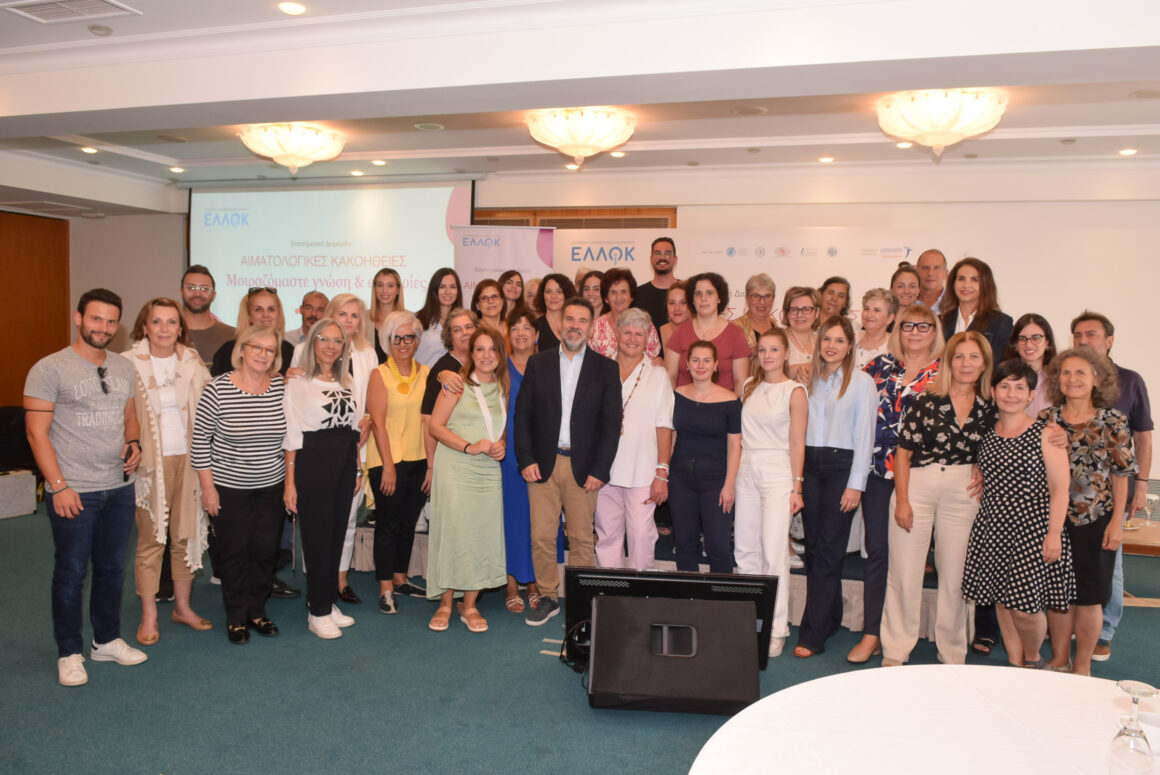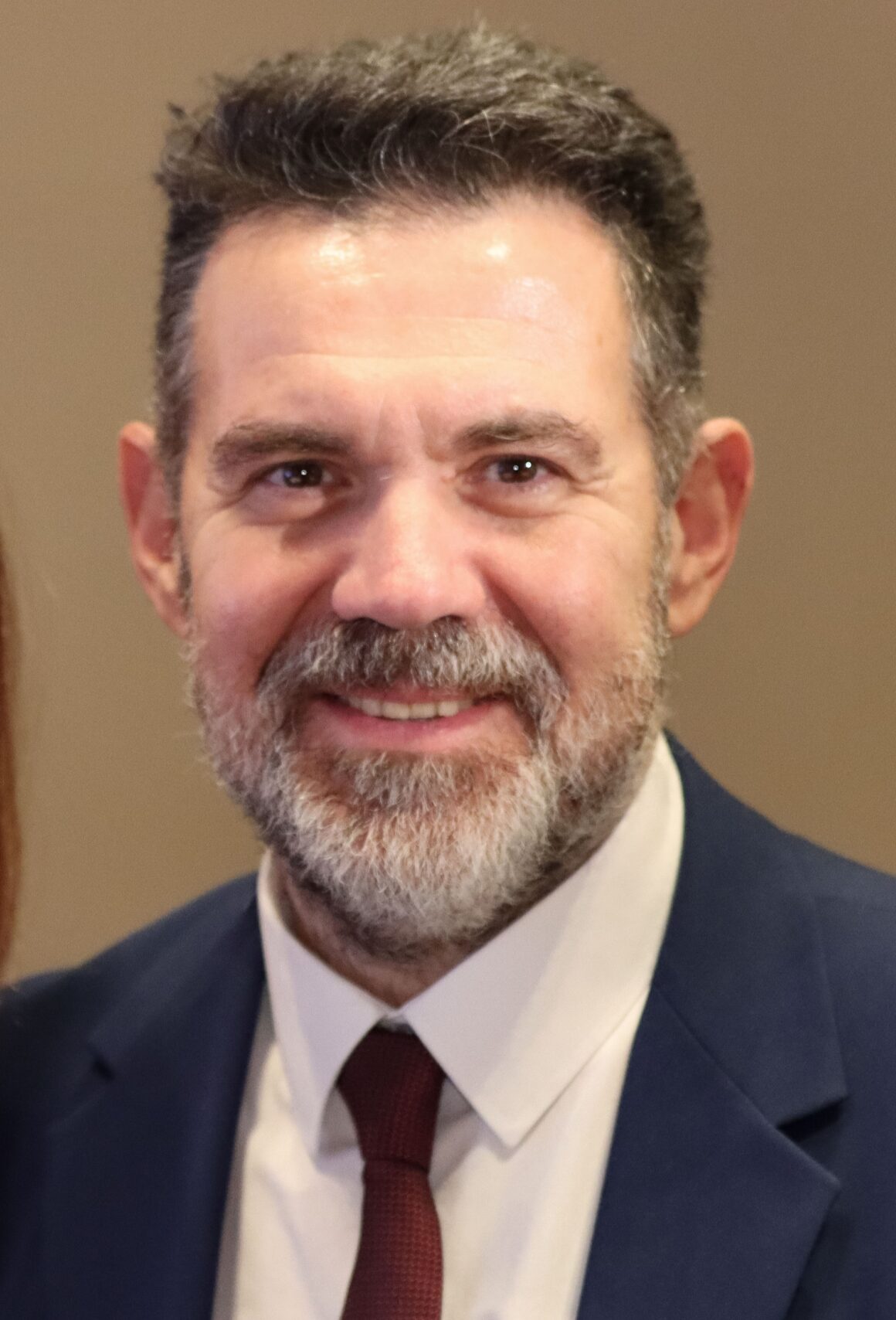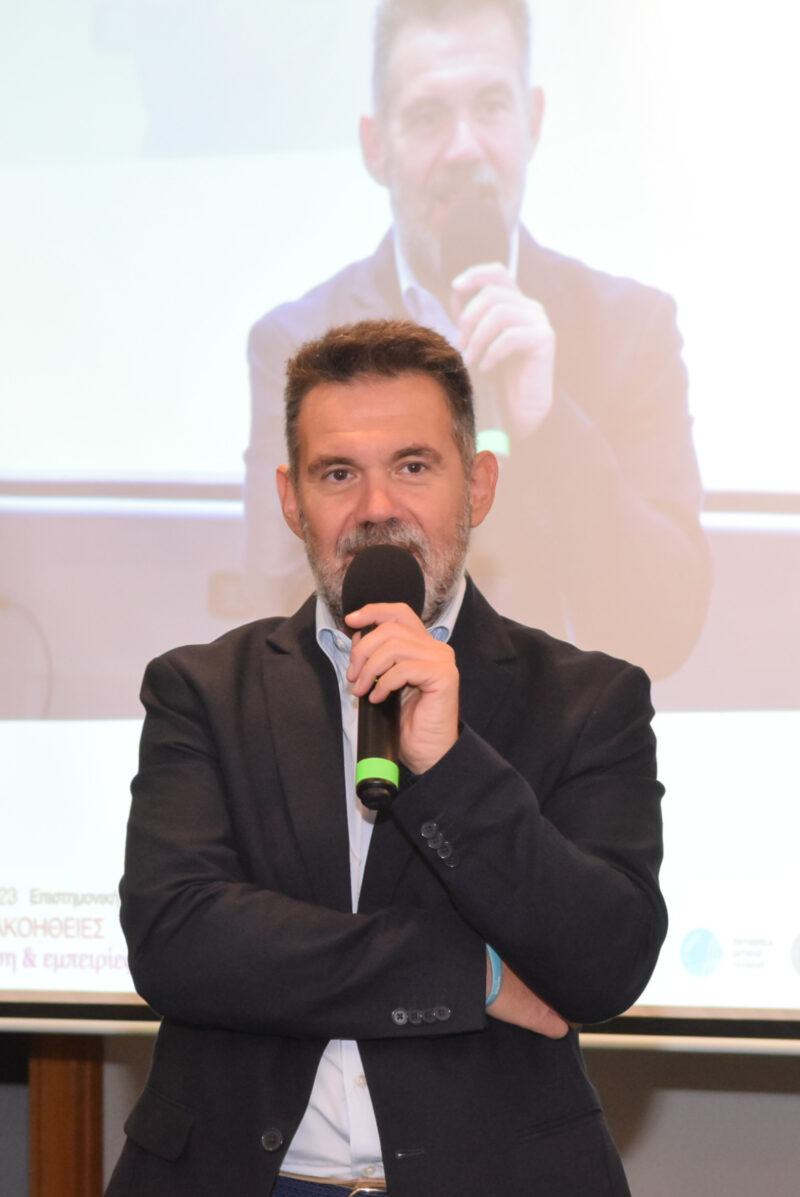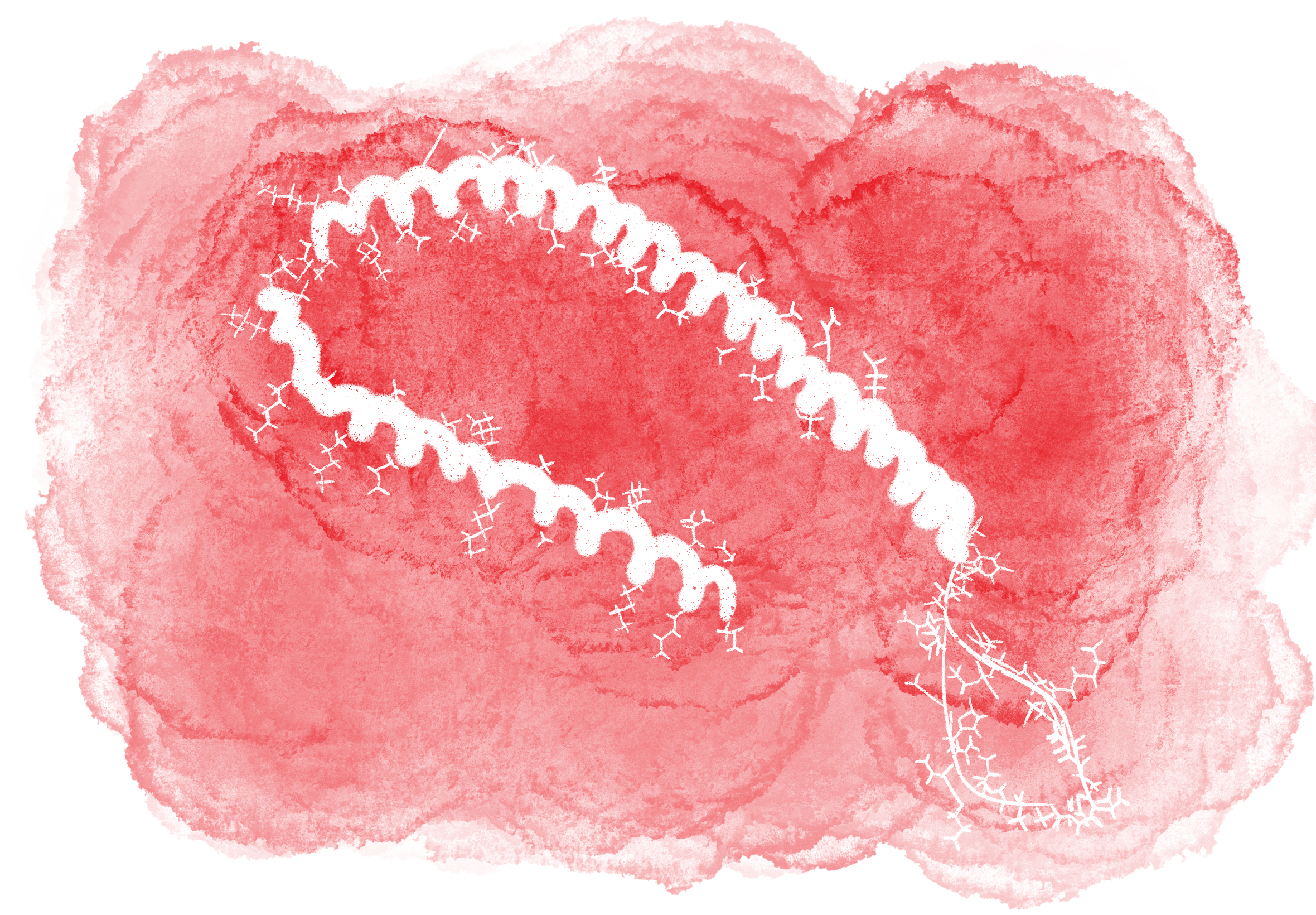I first met George Kapetanakis at a Greek conference, where we were co-moderating a session. He came across as a warm and humble person. At the time, I had no idea he was the president of Greece’s largest patient organization. There was no fanfare, no ego, just a steady presence and a kind smile.
Over time, I encountered George again at various international summits. Always in motion, often answering calls or working from his laptop, yet still radiating that same humility and calm resolve. It was only gradually that I began to grasp the scale of his work and the impact he, and his organization, have had, not just in Greece but across borders.
In this feature, we share George’s story: the story of a quiet leader whose influence runs deep, and whose dedication to patient advocacy continues to transform lives in ways that matter.
Raised in the Shadow of Mount Olympus
Born in Athens and raised in the shadow of the mythical Mount Olympus, George Kapetanakis describes his childhood simply as “a blessing.” It was a life shaped by enduring values. “I had a family with principles,” he recalls. “Values of equity, respect for others, and compassion for those struggling with life’s challenges.”
From an early age, he showed the instincts of a peacemaker. “I was always the kid trying to solve problems, not create them,” he says, a mindset that would go on to define his life’s work.
George originally wanted to be a doctor. “It was my dream,” he admits. “But maybe I lacked the confidence. I never even tried.” Instead, he pursued economics and built a career in the financial sector. He became a successful agency manager, using skills in organization, leadership, and client communication to build a solid, if understated, professional life. A life far from the public stage.
Then came the storm.
Diagnosis in a Broken System
First, his cancer diagnosis at age 43. Then, almost in parallel, Greece descended into one of the worst financial crises in its modern history.
“The country went upside down, everything collapsed. You can’t work, but the bills keep coming.” he says. “Factories closed. Unemployment reached 20 percent. Banks weren’t lending.We weren’t trying to build; we were just trying to save what we had.”
He remembers facing a system that offered no psychological support, no roadmap, no one to help navigate the bureaucratic nightmare of paperwork, treatment logistics, and social services. “At a time when you need clarity and compassion most, you’re left in the dark.”
“When you’re diagnosed with cancer, everything stops,” he says. “You don’t know if you’ll survive. The fear is enormous. And suddenly, you realize that your life, your job, your finances, your daily habits, none of that prepares you for this. You either lie down, be pathetic and just wait, or you stand up. I chose to stand up.”
A Second Life, A New Mission
Surviving cancer, he explains, isn’t the end of the journey; it’s a new beginning, often with unexpected complications. For many survivors, the scars are social and economic as much as physical.
“Clients left me,” he says bluntly. “They found out I had cancer, and they just walked away. Later, they told me, ‘We thought you would die, so we moved on.’ That’s the stigma. That’s the fear, and most of the people, because of that stigma and this fear, do not want to disclose their cancer diagnosis.”
But Kapetanakis chose a different path. “For me, hiding would have been a second burden, something I couldn’t carry. I said, this is who I am. If you accept me, I’m here. If not, I don’t care. Because I realized: being alive is the most important thing.”
That clarity changed everything. “In many ways, I was lucky to have cancer,” he says. “Because it was a message. It told me, George, something’s wrong. Life isn’t about status or money. It’s about being present.”
He describes a visceral transformation in how he experiences the world after cancer diagnosis. “Colors became different. The sky, the snow, the sea, I didn’t just see them. I feel them. Smell them. Touch them. Everything became more meaningful.”
Surviving cancer, he says, also gave him the emotional tools to weather Greece’s decade-long financial crisis. “I saw businesses close, and people lose everything. But I had this voice inside me saying, ‘You’re alive. That’s what matters.’ When you’ve looked death in the face, nothing else is quite so terrifying.”
I Never Thought I’d Be a President
George Kapetanakis never set out to lead a national movement.
“I never thought I’d be president of anything,” he says with a quiet shrug. “That was never the goal. I just wanted to help.”
But the deeper he stepped into that world, the more his professional instincts kicked in. The former finance manager quickly recognized the fragmented nature of cancer advocacy in Greece. Scattered patient associations were doing critical work, but there was no unified front. No umbrella organization. No national voice.
His background in finance, once seemingly unrelated, suddenly became a powerful tool. “I had years of experience in management,” he explains. “I knew how to organize an office, how to structure a team, how to build communication, how to motivate.”
George knew firsthand the gap was not just administrative, it was systemic. “Patients across Greece were facing the same problems, but they were fighting in isolation. That made no sense.”
In 2016, with the help of other patients and visionaries who shared his urgency, he co-founded the Hellenic Cancer Federation (ELLOK). It began with just 17 member organizations.
The journey, however, was anything but easy. The federation had no staff for its first two years. George served not just as a co-founder but also as its de facto secretary, director, administrator, and public face, all unpaid.
“You have to give your time, your working time, your sleeping time, your family time,” he says. “You study, you sacrifice, and you build. It’s something that just… grows. You don’t plan it. You follow your heart and you do what you know is right.”

Growth didn’t happen overnight. “At first, we had to prove ourselves,” he says. “Why should others join us? What did we offer that they couldn’t do alone?”
So ELLOK focused on sustainability, securing funding through carefully organized events and projects, and legitimacy, by building alliances with scientific communities, public health institutions, oncologists, research centers, and eventually, the Ministry of Health.
They never accepted government money. “We’re independent by design,” he says. “That matters.”
By the time Greece’s political environment began shifting in 2019, with a new government and growing health reform momentum, ELLOK was ready. When the pandemic struck in 2020, the federation had already laid the groundwork for a rapid, coordinated response.
By then, Kapetanakis had become president. The federation had grown to include more than 50 member organizations, spanning the entire country.
The Secret to Unity
What was his secret? How did a previously unknown federation gain the trust, and allegiance, of so many established groups, some with decades of history?
George answers without pretension. “First, the timing was right. The community knew it was time for change. I didn’t appear from nowhere; others had already done important groundwork.”
Second, he wasn’t alone. “There were other respected advocates involved, people others trusted. That matters.”
But the third reason, the one he considers his real contribution, was his ability to bring people together. “I always focused on what unites us, not what divides us,” he says. “We didn’t ignore our differences, but we didn’t make them the center of the conversation either. We worked on shared goals. Common perspectives. Everything else could wait.”
It worked. Where others might have triggered competition or conflict, George fostered consensus.
“I believe that’s the only reason we’ve come this far,” he says. “So far, so good.”
Changing the System: A Victory for Precision Medicine
In early 2024, Greece took a major leap forward in cancer care, a leap driven in large part by the quiet, persistent efforts of George Kapetanakis and the team at ELLOK.
For years, a paradox defined the Greek oncology system. While the government reimbursed advanced precision therapies, targeted, often lifesaving cancer treatments, it did not cover the biomarker tests required to determine which patients could actually benefit from them. The result was an invisible barrier: expensive medicines were theoretically available, but inaccessible in practice.
“Without biomarker testing,” Kapetanakis explains, “you’re essentially prescribing in the dark. You cannot access personalized medicine without knowing if a patient qualifies.”
ELLOK made breaking that paradox a national priority. But it wasn’t a one-person crusade, it was a coordinated movement. “We brought everyone together, oncologists, academic researchers, health economists, the pharmaceutical industry, patient groups,” he says. “It wasn’t about making noise. It was about building consensus.”
The breakthrough came when they found a receptive audience in the current Minister of Health. “He was someone who could understand,” Kapetanakis recalls. “But you had to present it clearly, directly, no fluff. And once he understood, he moved.”
At ELLOK’s annual conference in February 2025, the Minister publicly committed to addressing the issue. Behind the scenes, Kapetanakis and others worked intensively on a legislative path forward. By mid-2025, the Greek government was preparing to pass a law approving coverage for 37 critical biomarkers, an enormous win for patients across the country.
“We’re in the final mile now,” he says with quiet pride. “Soon, this will be law. And it will change lives.”
Why They Do This
For Kapetanakis, the victories are real, but never abstract. They always come back to one thing: the people.
“When a patient hugs you because they finally got access to treatment… that’s when you know why you’re doing this,” he says. “When someone calls and simply says, ‘thank you’, that’s everything.”
He’s reluctant to share personal stories, out of respect for privacy. But the emotion is unmistakable.
“Every action, big or small, has to mean something. That’s where the motivation comes from, to know that someone is in a better place because we tried.”
Who is George Kapetanakis?
To close our conversation, we asked him a series of blitz questions, quick answers that offer a glimpse into who George Kapetanakis is.

Favorite Greek dish that always comforts you?
Moussaka.
Favorite book and movie?
“A Boy Counts the Stars” by Menelaos Lountemis, an iconic Greek novel about hope and resilience.
And the film?
Gandhi. The life of Mahatma Gandhi still inspires me.
A leader you admire, living or dead?
Mahatma Gandhi.
Best advice you’ve ever received?
Don’t risk if you don’t have to.
What’s a common misconception about you?
That I’m very social. I’m not. I’m actually quite private.
Your personal motto?
“I’m not perfect, but I’m perfectly me.” It’s also on my X bio.
Favorite city in the world?
Rome. Always Rome.
If a biography were written about your life, what would the title be?
“I’m Here.”
Simple. Grounded. Honest. Much like George himself.












